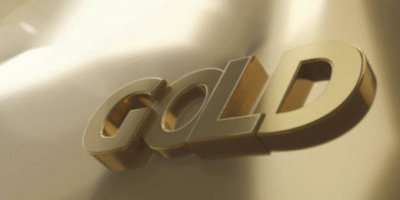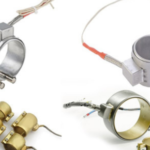Courtrooms aren’t places most people ever want to end up. But if you do, and the case involves questions of health, treatment, or medical negligence, the atmosphere can quickly feel like stepping into a different world. Lawyers speak in one language, doctors in another, and the judge or jury? They’re often just trying to keep up. That’s exactly where a medical expert witness steps in — not to sway opinion unfairly, but to make sense of complicated details and help everyone see the bigger picture.
Think about it: a personal injury claim hinging on whether a treatment was appropriate, a malpractice suit dissecting years of medical charts, or even a criminal trial where cause of death needs to be pinned down with scientific precision. In those moments, you don’t just need opinions. You need authority. You need clarity. And you need someone who can stand up to cross-examination without flinching. That’s the quiet, powerful role these experts play.
What a Medical Expert Witness Really Does
A lot of people think these experts simply show up, give a quick statement, and leave. The truth is, their job is far deeper and more demanding. A qualified professional can review thousands of pages of medical records, pull out the patterns that matter, and explain them in plain language. They might testify about the standard of care, about what a “reasonable” doctor should’ve done, or about long-term impacts of a condition.
Their testimony doesn’t just fill in gaps — it can shape the entire direction of a trial. A jury that starts off confused about medical jargon can suddenly understand how a misdiagnosis cascaded into a life-changing injury. Judges rely on that clarity too, especially in cases where the science itself becomes the battleground. That’s why attorneys often spend weeks or even months finding the right fit for this role. In fact, whole legal strategies can crumble without strong Medical expert witness services guiding the narrative.
Why It’s Not Just About Having a Degree
You might assume that any doctor could walk into court and provide testimony. But being an effective witness requires a very specific skill set. The best ones balance deep technical knowledge with an almost teacher-like ability to simplify without dumbing down. They need patience, a calm demeanor, and the confidence to withstand aggressive questioning.
It’s not uncommon for opposing counsel to poke holes in an expert’s credentials or cast doubt on their neutrality. A skilled medical witness expects this and is ready to stand their ground without becoming defensive. And while juries may never catch every subtle nuance of their testimony, they will notice credibility, tone, and consistency. Those qualities often make the difference between winning and losing.
The Search for the Right Witness
If you’ve ever tried to track down a specialist yourself, you know how overwhelming it can be. There are cardiologists, neurologists, orthopedic surgeons, toxicologists — the list goes on. Finding someone who not only has the right specialty but is also willing and prepared to step into court is another challenge entirely.
Attorneys often work with networks or agencies that maintain connections with professionals across fields. That makes it easier to locate someone who matches the specific needs of a case. For the rest of us, it’s not unusual to turn to online directories or legal resources to Find medical expert witness near me when a case suddenly demands medical insight. It’s the kind of search that might feel stressful in the moment, but with the right guidance, it can lead to the perfect match.
Cost Versus Value
Let’s be honest: bringing in a medical expert isn’t cheap. Fees vary depending on the complexity of the case and the expert’s background. Some charge hourly for reviewing files, others set flat rates for courtroom appearances. At first glance, those numbers can feel steep.
But consider what’s at stake. In a personal injury case, the damages awarded could shape the rest of someone’s life. In malpractice suits, a doctor’s entire career might hang in the balance. Compared to the potential financial and emotional outcomes, the investment in expert testimony becomes far easier to justify. What you’re really buying isn’t just expertise — it’s credibility, translation of medical jargon into common sense, and often the key to swaying undecided jurors.
Preparing for Court
Once hired, experts don’t just stroll in unprepared. They often collaborate closely with the legal team, reviewing strategies, drafting reports, and even rehearsing testimony. Attorneys might run through likely questions, not because they expect scripted answers, but to ensure the witness stays comfortable under pressure.
The courtroom itself can be intimidating — bright lights, a dozen eyes watching every movement, a judge keeping strict time. Yet the best experts maintain composure, focusing solely on explaining what they know to be true. Their goal isn’t to win over one side or the other, but to help everyone understand the facts as they see them. And that authenticity tends to resonate more strongly than any lawyer’s argument.
When You Might Need to Hire One
Here’s the thing: not every legal dispute requires a medical witness. But whenever the case centers on health, treatment, or medical decision-making, their presence can shift the ground beneath your feet. Common scenarios include surgical errors, delayed diagnoses, medication overdoses, or long-term disability evaluations.
Lawyers who’ve been through these battles will tell you — don’t wait until the last minute. If you know a trial is headed in that direction, it’s worth moving early to Hire a medical expert for trial so they have enough time to prepare thoroughly. The sooner they can dive into records, the stronger the testimony is likely to be.
A Final Thought
At the end of the day, medical expert witnesses are translators. They take a language most of us can’t begin to parse — the complex, highly specialized vocabulary of medicine — and render it into something juries, judges, and lawyers can work with. Without them, many trials would collapse into confusion, with life-altering outcomes left to guesswork.
So while you may never plan to encounter one, knowing that such professionals exist, and understanding their role, can provide a surprising sense of reassurance. In a system where clarity often feels elusive, they remind us that truth still has advocates — not just in the courtroom, but in the careful, measured voices of those who’ve dedicated their lives to medicine.













Leave a Reply
You must be logged in to post a comment.